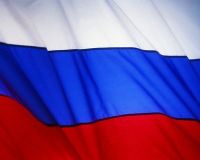
Where to draw the lines?
Hailing again from Wikistrat’s International Grand Strategy Competition (30 teams of grad students/interns from elite universities and think tanks around the world), where I serve as head judge (and I get paid), I wanted to share the decidedly provocative vision of Russia’s long-term future security paradigm as crafted by the New York University team (find their national trajectory here). A certain segment of the US national security establishment got all jacked by Russia’s short war with tiny Georgia in August 2008, seeing in that raw display of power a “resurging” military superpower. NYU begs to differ.
Peering a couple decades into the future, the NYU team sees a Moscow made nervous about China’s slow-motion “invasion” of its Far East region and Beijing’s ravenous pursuit of energy and minerals both there and throughout Central Asia. Toss in the proverbially restive “near abroad” that is the Muslim north Caucasus and, frankly, Russia’s NATO-facing western flank is as good as it gets for a multiethnic federation facing a 40 percent (!) drop in population by 2050.
But there is good news to go along with the intimidating: global climate change puts Russia’s vast northern border back in strategic play, meaning there are deep water energy and logistical riches (i.e., the freed-up Arctic route) to be both exploited and defended. In short, Russia’s indefensibly long borders are about to get a lot longer – and a lot more indefensible.
Here’s where the NYU team, playing as Russia in the competition, finds fault with real-world Moscow’s persistent pursuit of a big-war Leviathan-style force for foreign adventures. What it really needs to do, says NYU, is scrap that decaying behemoth and trade it in for an internal/border-focused small-wars force – or what I’ve long dubbed a “sysadmin” force more focused on policing the environment than pounding potential enemies.
But NYU doesn’t stop there: arguing that Russia’s combination of demographic decline and commodity-heavy economic development will leave it both body- and cash-strapped in relation to its geographically vast infrastructure requirements (i.e., those opportunities “warmed up” by global climate change). The stunning upshot? Russia is less likely to be in the business of bullying its neighbors than outsourcing its border security to a wide array of global partners eager to take advantage of the nation’s many natural riches.
We may tend to think of Russia purely as an energy power, says NYU, but its future wealth will be increasingly defined by its geographic centrality (logistics) and its ability to export food and water in a hungrier and hotter world. Asia as a whole has about half the water it needs (60 percent of humanity living on 36 percent of the planet’s freshwater), but most of that “blue gold” is concentrated in the north, aka Russia. Thus, climate change will most assuredly make Russia a go-to player on agriculture (not unlike North America), but likewise a literal go-to spot for those emigrating from too hot middle latitudes.
Add it all up, says the NYU team, and Russia must inevitably enter into all sorts of security-sharing agreements with its neighbors and distant customers, meaning the Big Red One is never coming back as a military menace.
Great stuff from some of America’s future grand strategists.


